
Interviewing veterans from both sides of the war, and consciously staying away from historians and academics—the ten-part series (with a cumulative runtime of nearly 18 hours) mimics the long, arduous nature of the war fought by the Americans actively for nearly two decades. The series—made on a budget of around $30 million—played on the Public Broadcasting Service (PBS) in America. Seven years after The Vietnam War came out and was hailed for its thoroughness, Lynn Novick reflects on the documentary. In an interview with Tatsam Mukherjee, she also touches upon the recognisable patterns that emerged from Vietnam, which were repeated in the USA's entanglements in Iraq, Afghanistan; the fraught nature of truth these days and the responsibility on documentary filmmakers and journalists; and the burden on war documentaries to be cautionary tales for us. The hour-long conversation has been edited for clarity. Excerpts:
Do you think it's possible for a documentary series to articulate an objective, multi-faceted truth? Or can we only hope for an approximation?
That's a deep question. The assumption of the question is, there is some truth that we can all agree exists. For certain things, I would say there is an objective truth that America did not win the Vietnam War. There are people who think that we were winning when we pulled out. That, to me, objectively, is not true. In other words, there is a realm in which there are facts, and those facts must be understood to help us get to the truth of what happened, as best as we can figure them out right now.
This story is from the January 11, 2025 edition of Outlook.
Start your 7-day Magzter GOLD free trial to access thousands of curated premium stories, and 9,000+ magazines and newspapers.
Already a subscriber ? Sign In
This story is from the January 11, 2025 edition of Outlook.
Start your 7-day Magzter GOLD free trial to access thousands of curated premium stories, and 9,000+ magazines and newspapers.
Already a subscriber? Sign In
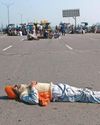
Between Life, Death and Protest
The strain of sustaining a long protest is evident among farmers at Khanauri, but the sense of community remains strong
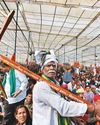
Protest 2.0
Farmers still have hopes from their leaders, but time is running out. The enemies, in the meanwhile, are sharpening their weapons

Trajectory of Nowhere
In the context of space and time, who are we humans and do we even matter?

All of God's Men
THE ongoing Maha Kumbh at Prayagraj is a spectacle, a photo op, and an emotion and manifestation of the mixing of spirituality and faith.
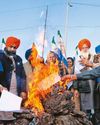
Embers Rekindled
While the recent death by suicide of a farmer has rendered the mood sombre at Shambhu border, the protests have picked momentum at the call of the unions
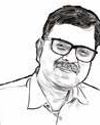
Time for Course Correction
What the protest by Punjab's landed peasantry tells us about the state's economy and society
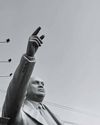
The Untouchable
The ideological chasm between Ambedkar's vision and the Hindutva worldview remains irreconcilable
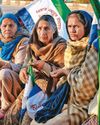
Frontliners
A day in the life of women protesting at Shambhu border
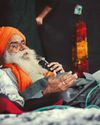
The Farmer-Composing Antagonist
Farmer leader Jagjit Singh Dallewal has been on a fast-unto-death at Khanauri border to pressurise the government to fulfil its promises to the farming community
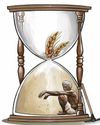
Till Death Do Us Part
Jagjit Singh Dallewal has reinforced how a fast unto death can serve as a warning and an appeal to the public and the government